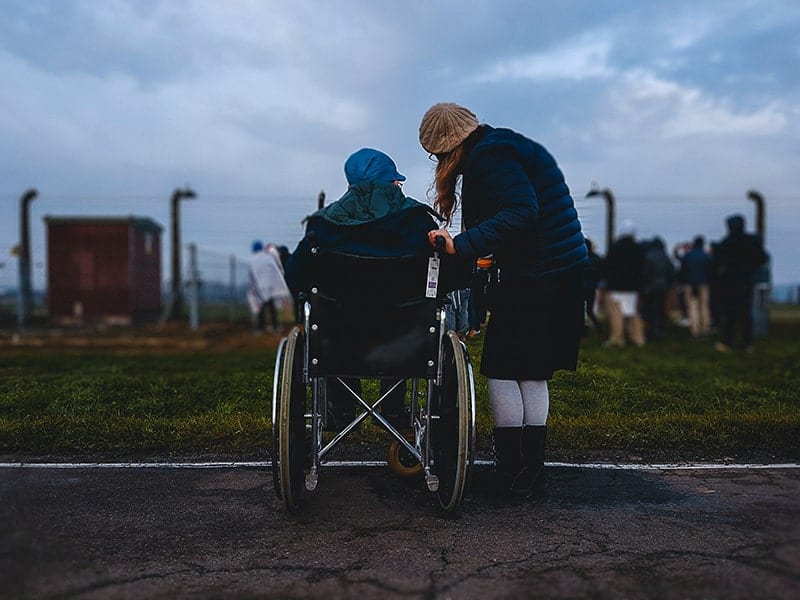Whether in a professional or family-care setting, caregivers make a positive difference in the lives of the seniors they work with. They provide compassionate, loving, and patient care and help seniors improve their quality of life.
By 2060, it is estimated that there could be almost 100 million seniors in the United States compared to today’s 46 million. That means the importance of caregivers is only set to rise. Many times, unpaid family caregivers are taking on these responsibilities without the help of professional caregivers.
What is a Professional Caregiver?
The definition is broad because there are so many settings in which caregivers work. It could be those caring for seniors in assisted living communities, nursing homes, or even providing professional in-home care. It is also those family members that provide unpaid in-home care to their loved ones.
Professional medical caregivers perform the following duties, as needed:
- Monitoring vital signs
- Administering and changing dressings
- Inserting and managing catheters
- Preparing and monitoring IVs
- Treating conditions
- Administering injections
- Drawing blood
- Providing hospice care for terminal illnesses
These are a few different titles that medical senior caregivers might hold:
- Home Care Aides
- Personal Care Aides
- Certified Nursing Assistants (CNAs)
- Licensed Practical and Vocational Nurses (LPNs/LVNs)
Assisted living communities and nursing homes may also have skilled nursing units and other health care professionals on staff, such as licensed physicians and physical therapists. This can reduce the need to have medical appointments outside of their community.
Professional, non-medical caregivers are just as important, but might be responsible for things like preparing care plans, assisting with daily living and medication help, mobility assistance, meal preparation, housekeeping, transportation, and general monitoring of health and well-being.
What are the Duties of a Family Caregiver?
Many seniors may wish to remain at home as long as possible and many family members take on the role of caregiver to make this possible for their loved one. While it can be a challenging and demanding time, it is typically very rewarding. Family caregivers often share the burden with one or two other family members and provide many of the same tasks as a professional caregiver.
Some recent surveys have found that the most common tasks that a family caregiver performs are things like running errands, doing housework, cooking, and minor home repairs. However, a survey done by the AARP found that the medical tasks of family caregivers are gradually increasing, as well. In fact, about 57% said they were taking on duties like giving injections, administering tube feedings, and even caring for catheters.
Depending upon the senior’s needs, family caregivers may be doing a wide variety of tasks for their loved ones.
These are just a few of the common duties of a family caregiver:
- Establishing a care plan
- Providing transportation
- Managing finances
- Housekeeping
- Meal planning and cooking
- Scheduling important appointments
- Safety inspections of the home
- Creating emergency plans
- Providing companionship
Avoiding Burnout for Family Caregivers
Many family caregivers report that they are extremely fulfilled in caring for their loved one. However, there are some tips that will help a family caregiver avoid unnecessary stress and burnout. Caregiving is no small job. It comes with huge responsibilities.
Here’s how you can set yourself up for success as a family caregiver:
- Take care of yourself. You can’t pour from an empty cup. Get exercise, sleep, and social time with your friends and family.
- Utilize stress management techniques. Take time to “turn off” your brain. Try an adult coloring book, getting fresh air and sunshine, or meditation.
- Educate yourself. Become familiar with any conditions your loved one may have, as well as basic caregiving principles. The more you know, the less worried/stressed about making a mistake.
- Establish and stick to a schedule. You may have other family members helping out with care, but you should create a schedule regardless.
- Get organized. Establish a file system with binders or folders to categorize and store all important paperwork related to your loved ones’ care, finances, appointments, etc.
- Connect with other caregivers. Sometimes, caregiving can feel lonely. It can be beneficial to connect with other caregivers in your community (or even on social media) to share common problems and get support.
- Be realistic about your capabilities. Don’t try to push yourself beyond your limits. Know when it’s time to bring on professional help.
It’s important to keep your own physical and mental health and well-being in mind when taking on the responsibility of caring for an aging loved one. If you look after your own needs, the experience can be very rewarding.
————————————————–
Considering assisted living communities for your loved one? Come experience the difference at Regency at Augusta. Schedule a visit today!


 Schedule a Tour Today!
Schedule a Tour Today!







